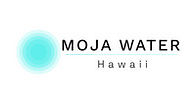
Reducing Carbon Emissions
Mitigating Waterborne
Diseases
Reducing
Deforestation
Protecting
Wildlife


Our Future
We are nearing a new phase in our mission, when we will begin installing larger, more sophisticated clean water systems to serve denser populations more efficiently. While working
around the water to foster education, healthcare,
agriculture, and athletics for communities.
All donations are applied 100% to our clean water projects.
MOJA
Phase III
Phase II
Empowering Communities
Sustainable Impact
Powerful Partners
A Better Future
Clean water systems in Uganda
empower communities by improving health and educational opportunities, as children spend less time collecting water. These initiatives promote community engagement and collaboration for sustainable solutions, strengthening communities and paving the way for a
better future.
Clean water systems contribute to reducing deforestation and carbon emissions by minimizing the dependence on firewood for boiling contaminated water. By ensuring access to safe water, communities can protect natural forest resources and habitats.
Collaborating with local authorities and other stakeholders, like the Ugandan Ministry of Water aligns our efforts with national health strategies. This partnership helps in gaining support and resources needed for effective implementation, testing, and maintenance of our
clean water systems.
Creating a better future for Uganda begins with clean water systems. Safe water is vital for health, education, and economic growth. Investing in sustainable solutions helps communities thrive, reduces waterborne diseases, and empowers individuals, ensuring a better future for communities.
Social Impacts
Establishing clean water systems encourages cooperation among community members. Working together to build and maintain these systems strengthens social relationships and promotes a sense of collective responsibility, creating a brighter future.
Environmental Impacts
The impacts of providing clean water systems in Uganda extend far beyond health; they touch
upon social dynamics, educational advancements, and environmental stewardship. By addressing these interconnected aspects, clean water systems not only improve the quality of life for individuals but also contribute to the long-term sustainability of communities and their natural resources.
Together, these efforts pave the way for a healthier, more resilient future for Uganda.
The Problem
Collecting water from open sources
People should not have to do this.
Above: Mutebi Naifu is left to collect water from an open source with the children of his orphanage. They will also have to collect firewood to boil the contaminated water.

Recent Project
Kumi
Bukoona Village

Location
Iganga District, Eastern Uganda
Water Found
October 21, 2024
Impact
1000+ community members
Ground Broken
October 7, 2024
Depth
66m
Status
COMPLETE
November 11, 2024











.png)

























